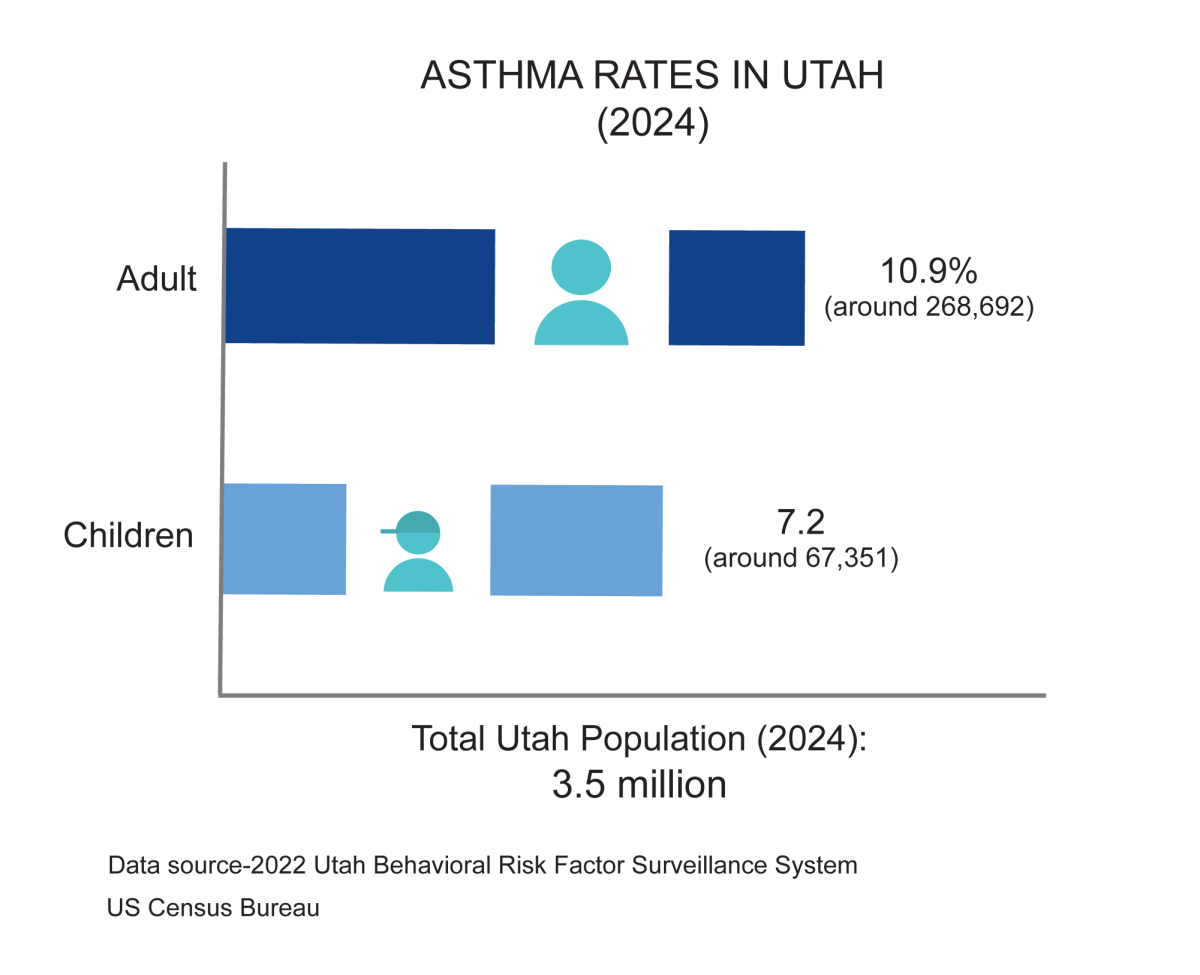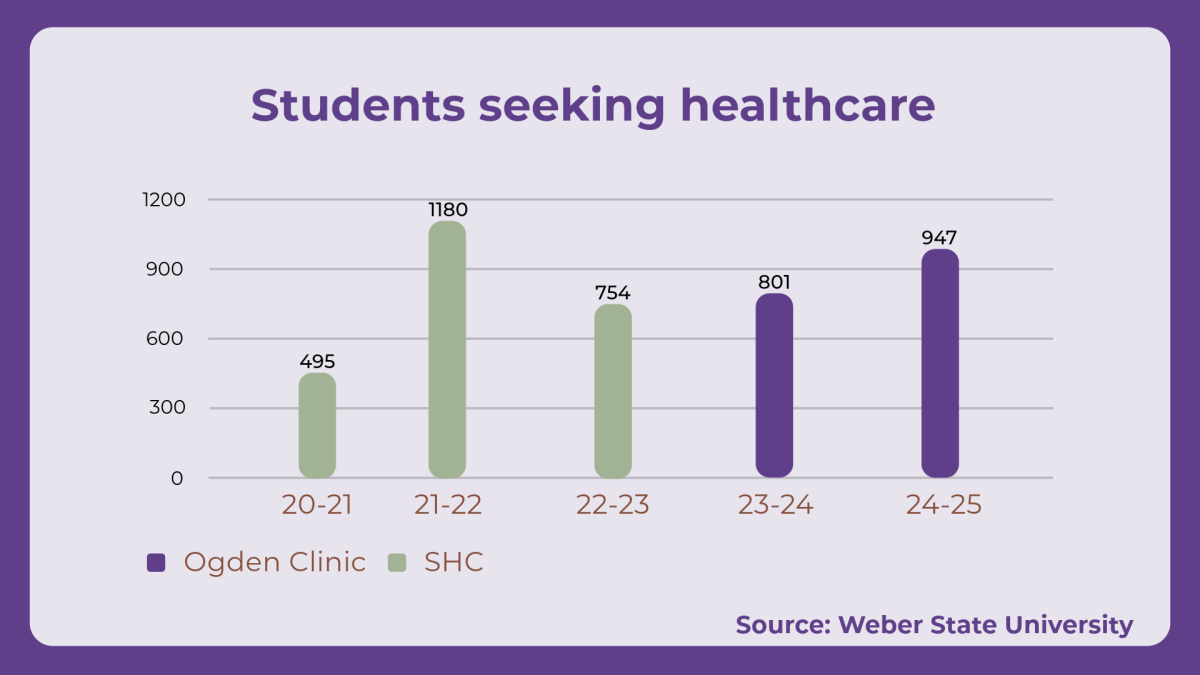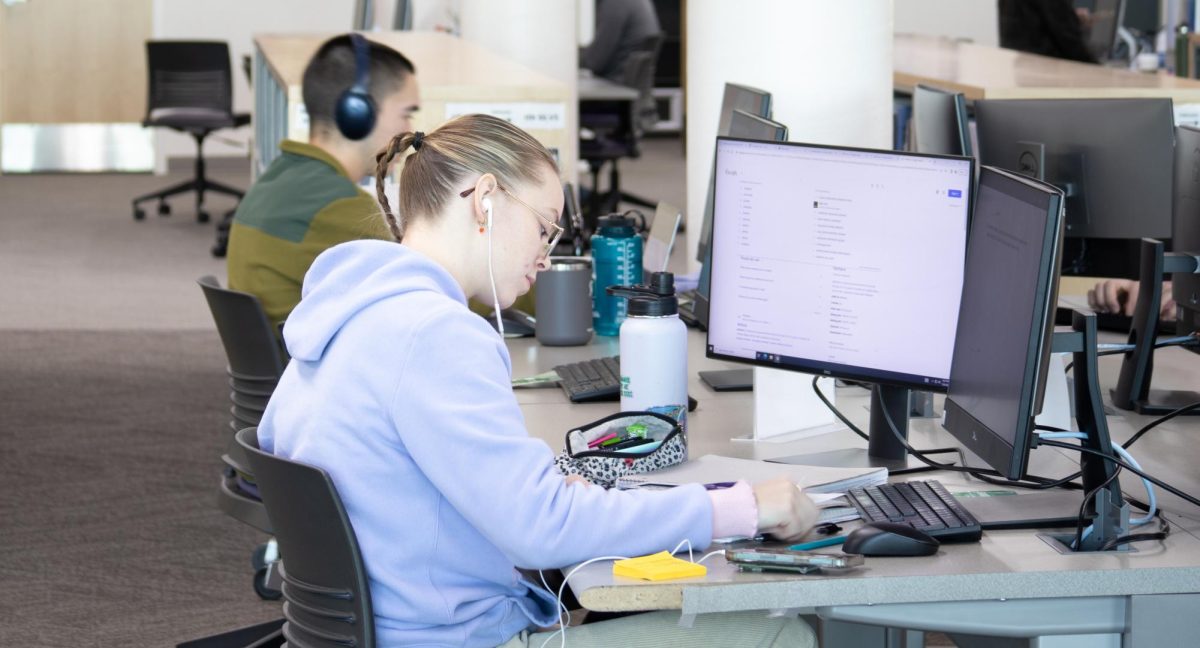Dr. Scott Moore, a Weber State University assistant professor at Medical Laboratory Sciences, will be recognized as a recipient of 2021’s 40 Under 40 award, presented by the nation-wide American Society for Clinical Pathology. Moore’s research is focused on diabetes reversal.

“Diabetes is one of these low-hanging fruits, which is completely reversible, but people don’t think it is,” Moore said.
According to Moore, the east bench — where the WSU main campus is located in Ogden — has the highest percentage of Type 2 Diabetes cases in Utah, so geographically, it seems like the perfect area for his study to take place.
The impact of Moore’s research may extend well beyond the state as Moore is now funded to do upcoming studies on the reversal of diabetes.
“We’re still designing the trial right now,” Moore said. “This is going to be a huge ask; we’re probably asking for $750 thousand, almost a million.”
Scott Moore has a success story which shines and starts at Weber State University, where he met his wife, Ashley Moore.
Moore wasn’t certain of what he wanted to do or where he wanted to go in life. However, after finding a mentor, Moore decided to go to medical school. His success story took an unexpected twist: being hit by a car during his third year as a medical student in Arizona.
With Moore’s accident came a brush with death, a Life Flight to Flagstaff Medical Center, a life-threatening brain bleed and an immediate medical operation on his head. Upon waking in the hospital, amnesia ensued. The last memory Moore had was getting ready to go to Church on the previous Sunday with his wife, two days before being hit by the car. Moore’s reality would never be the same.
He had a full year of recovery time, and it was necessary for Moore to relearn everything after the crash — how to read, write, walk, talk, brush his teeth and so on, including neural habilitation for about a year. There were few things Moore could remember before his accident. Moore remembered his wife Ashley, and he also knew he was a medical student — although having forgotten all his medical knowledge, Moore knew within himself he was a medical student.
“I became a study machine,” Moore said. “Leading up to it, I probably studied for about 12 to 16 hours a day for about 4 months up to the exam. About a year after my accident, I passed the exam, so I could go back to school.”
The exam Moore passed, first try, took relearning all the first year of medical school, and passing the second board examination. He finished medical school, and Moore attributes the success of his recovery to his support network: his wife, his neurological team, his parents and his religious community.
Moore now has the ability to pass different approaches to studying onto his students. His neuropsychologists and recovery team helped Moore to identify how humans are receiving that learning.
“I have been able to study the science behind learning.” Moore said. “I have been able to formulate different methods to resonate with students as good as possible. The students can put in the least amount of time for the most amount of knowledge that they gain.”
Moore is able to provide new approaches to teaching his students in the MLS program from what he has learned from his own relearning caused by ramifications of the accident. Now, Moore is now researching the reversal of diabetes.
The most effective way to reverse diabetes is to place people on a whole-food, plant-based diet, so he plans to create a community trial that can reverse diabetes across the world.
“One thing is, in order for these patients to be successful, we need to have them have support — community support and family support.” Moore said. “There’s no way they’re going to be successful if their kid is bringing home pizza all the time. They’re going to want pizza. So if their whole family is on board and they are like hey, you know what? You’re going to help cure diabetes if you’re eating what dad’s eating.”

Moore describes the upcoming study as a “community intervention” and will incorporate the six pillars of lifestyle medicine: whole-food, plant-based diet, adequate activity, adequate amount of sleep, stress management, social engagement and avoidance of risky behaviors such as alcohol, tobacco and drugs.
The trial will include not only the person with diabetes, but their entire family. According to Moore, the primary factor for diabetes reversal is the plant-based, whole-food diet. The study will last one year.
This will not only be a community intervention study, but it will include something that has never been attempted before. The study will be mapping out the genetic transcription through something called Transcriptdome analysis.
According to Moore, the Transcriptdome analysis will allow the study to uncover whether diabetes reversal is plausible or not for the entire scientific community, which will be new insight for scientists to better understand the realities of the problem of diabetes.
“Diabetes reversal is not just a goal anymore, but it is also feasible,” Moore said. “It should become the norm. It should become the standard treatment.”
Moore stated that diet is everything, yielding effective results to combat diabetes. On Sept. 7, the American Diabetes Association announced that diabetes reversal is possible within just three months. However, Moore’s trial will be one year with clients, including checkups for progress monitoring about every three months.
Dr. Matthew Nicholaou, Chair of the MLS Department, has been chair for six years. When Moore applied for a job at Weber State University During the hiring process, Nicholaou was the Chair of The Search Committee.
He describes Moore as an asset not only to the MLS Department, but to the university as a whole. He praises Moore’s outside-of-the-box, innovated and student-oriented approaches to the teaching process and his whatever-it-takes approach to student successes after their higher education. Nicholaou said Moore is ensuring that any student involved in the MLS Department will be able to take care of future loved ones and people all over the world by readying them to be hands-on medical professionals right after they earn their degrees.
“Something we always look for is real-world or additional experience, that we thought Scott really had,” Nicholaou said. “He really started to win us over with his willingness and effort.”
Moore has been a member of the faculty since January of 2017.
“We are inspired by these engaged and passionate young professionals, who are driven to improve healthcare delivery by doing innovative and creative work for their institutions and beyond,” ASCP President Kimberly Sanford said in a press release released on June 24. “ASCP’s 40 Under Forty program is a unique opportunity to recognize these outstanding individuals and to give them the support they need to foster their continuing leadership potential and growth.”
The actualization of diabetes reversal is something that the entire world will see as revolutionary.



















